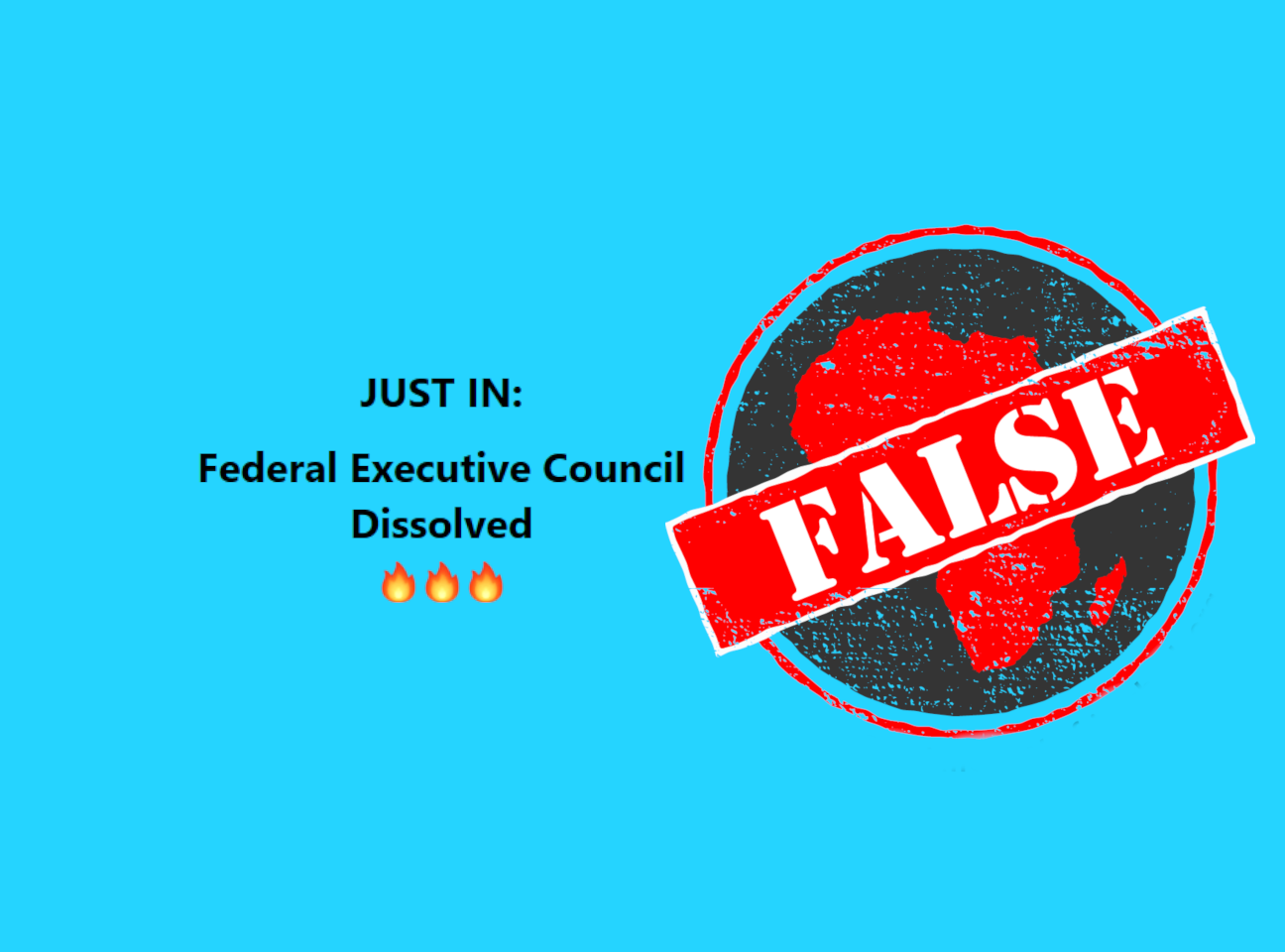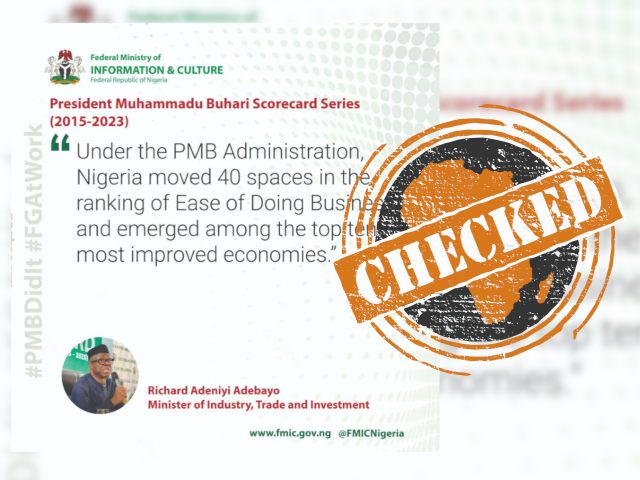IN SHORT: Muhammadu Buhari is due to hand over the Nigerian presidency to Bola Tinubu on 29 May 2023, and it was widely expected he would dissolve the federal executive council at a farewell meeting on 24 May. But, despite reports, this didn’t happen.
“Just in: Federal Executive Council dissolved,” reads a Facebook post dated 24 May 2023.
Nigeria’s federal executive council is made up of cabinet ministers. Each minister is an adviser to the president of Nigeria, who serves as the council’s chairperson.
Muhammadu Buhari was sworn in as president of Nigeria on 29 May 2015. After serving two terms, he is due to hand over to president-elect Bola Tinubu on 29 May 2023.
On 24 May, Buhari chaired a farewell federal executive council meeting. It was held at the council chambers of the state house in Abuja.
Nigeria’s vice president, Prof Yemi Osibanjo, and all 44 ministers and ministers of state were at the meeting. Nigerians expected that Buhari would dissolve the council during the meeting since his tenure would end in a few days.
The claim that the federal executive council was dissolved has been shared on Facebook here, here, here, here, here, here, here, here, here, here, here, here, here, here, here, here, here, here, here, here, here, here, here, here, here, here, here, here, here, here, here and here
But did this happen?

Council continuing, not dissolved, till 29 May
If the claim were true, all cabinet ministers would hand over to the permanent secretaries in their ministries. But that was not the case.
Buhari directed members of the council to continue with their functions till 29 May.
Nigeria’s information minister Lai Mohammed said the cabinet was not dissolved contrary to reports.
He said: “We have all been directed to go back to our offices and ensure that we continue to work right to the end of 29 May. So please ignore the fake news.”
Republish our content for free
For publishers: what to do if your post is rated false
A fact-checker has rated your Facebook or Instagram post as “false”, “altered”, “partly false” or “missing context”. This could have serious consequences. What do you do?
Click on our guide for the steps you should follow.
Publishers guideAfrica Check teams up with Facebook
Africa Check is a partner in Meta's third-party fact-checking programme to help stop the spread of false information on social media.
The content we rate as “false” will be downgraded on Facebook and Instagram. This means fewer people will see it.
You can also help identify false information on Facebook. This guide explains how.



Add new comment